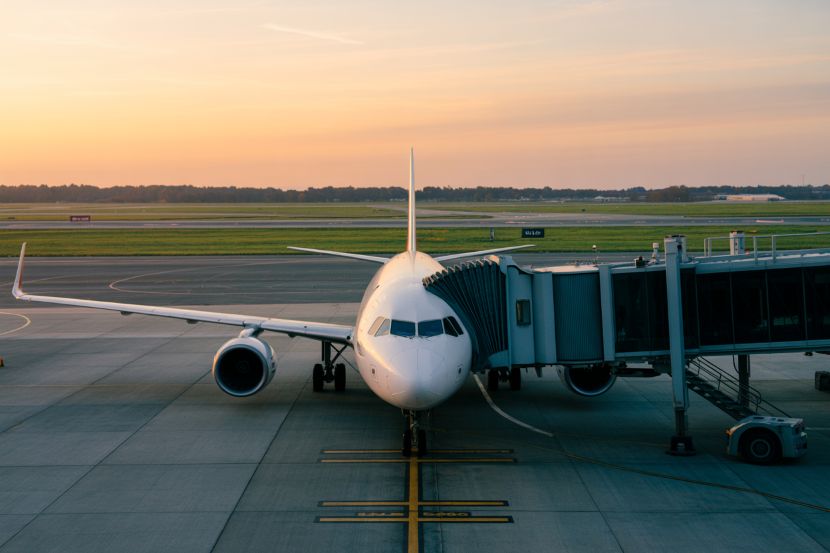Home » AIRLINE NEWS » Lufthansa to Cut Four Thousand Jobs by 2030 in Germany, Austria, and Switzerland as Part of Restructuring Efforts for a More Efficient Airline Network
Published on
October 1, 2025
Lufthansa, the iconic German airline, is planning to reduce its workforce by approximately 4,000 employees over the next five years. The job cuts will predominantly affect administrative positions in Germany, rather than operational roles such as pilots, cabin crew, or ground staff. This move is part of a broader strategy to lower costs and streamline operations, particularly as the airline adapts to evolving technologies and changes within the global travel industry.
The airline, which currently employs around 103,000 people worldwide, aims to maintain competitiveness in the fast-evolving aviation market while focusing on long-term growth and operational efficiency. The company’s extensive network, including subsidiaries like Eurowings, Austrian Airlines, Swiss, Brussels Airlines, and the newly acquired ITA Airways, provides it with a significant footprint across Europe and beyond.
How Lufthansa’s Workforce Reduction Reflects Industry Shifts
Lufthansa’s decision to cut jobs comes as the airline strives to adapt to new challenges in the airline sector, including cost pressures, changing consumer demands, and advancements in technology. The airline is looking to reduce administrative costs and optimize its operations, particularly in the face of increasing competition and a rapidly changing economic landscape. While operational jobs such as pilots and cabin crew remain essential, the company is focusing on modernizing its back-office functions to improve productivity and drive long-term profitability.
Impact on Lufthansa’s European Network
The majority of the job cuts are expected to occur in Germany, where Lufthansa’s headquarters are based. However, given its large network of European carriers, the layoffs may also extend to other parts of the continent, although operational staff are likely to be unaffected. For instance, the airline’s subsidiaries like Austrian Airlines, Swiss, and Brussels Airlines are part of the Lufthansa Group, but they are likely to see minimal disruption to their core operations, as pilots and cabin crew are seen as key roles that support the airline’s daily functions.
Adapting to the Digital Age: Technology and Efficiency at the Forefront
One of the main drivers behind these workforce reductions is Lufthansa’s strategy to embrace new technologies that will streamline its administrative processes. Automation and artificial intelligence are playing a significant role in transforming how the airline operates, allowing it to reduce costs while continuing to improve service quality and customer experience. The move towards digital solutions is not just about reducing headcount, but also about reimagining how the airline delivers its services in an increasingly tech-driven world.
What Should Travelers Do?
As travelers, it’s important to stay updated on potential impacts that these workforce changes might have on your flight experience. While operational staff like pilots and cabin crew are not expected to be directly affected, any restructuring at the airline may lead to changes in customer service practices or alterations to flight schedules. Travelers should consider signing up for Lufthansa’s alerts to stay informed about any changes to their bookings or upcoming flights.
Additionally, staying flexible with travel plans can be a smart approach in light of any future operational shifts. Those traveling to or from destinations served by Lufthansa Group carriers like Eurowings or Swiss may experience indirect effects due to changes in corporate structure or management.
Lufthansa’s Goals for the Future: Profitability and Sustainability
Looking ahead to the years between 2028 and 2030, Lufthansa has set an ambitious target of achieving an operating margin of 8 to 10 percent. This goal reflects the airline’s broader aim to ensure long-term profitability by aligning its costs with revenue growth. With a clear focus on efficiency, sustainability, and operational excellence, Lufthansa is preparing to navigate the future of aviation with a more streamlined workforce and a sharper competitive edge.
Lufthansa’s global reach means it has the capacity to shape the future of the European airline industry. The airline has already been expanding its footprint with the acquisition of ITA Airways, positioning itself as a dominant player in Europe and beyond. With this strategic acquisition, Lufthansa has strengthened its position, making it more resilient in the face of economic challenges and changing consumer preferences.
Further Developments and the Road Ahead for the Airline Industry
The aviation industry, in general, is experiencing rapid changes, with airlines increasingly relying on technology to reduce costs and improve efficiencies. From automation in administrative tasks to the integration of artificial intelligence for customer service, the landscape is evolving. Lufthansa’s move to reduce administrative roles reflects this trend, as airlines worldwide seek to modernize their operations and adapt to the post-pandemic travel boom.
As the airline group plans for future growth, its investments in technology and sustainability will play an important role in shaping its strategy. With travelers becoming more tech-savvy and environmentally conscious, Lufthansa’s continued focus on operational excellence and its commitment to reducing its carbon footprint will likely remain a key focus area for the airline.
The Bottom Line: What This Means for the Future of Travel in Europe
In the coming years, Lufthansa’s shift toward greater efficiency will likely set a precedent for other major airlines in Europe and worldwide. While some administrative jobs will be eliminated, the airline’s focus on technology and sustainability signals a broader trend in the aviation industry. For travelers, the key takeaway is the importance of staying informed, flexible, and adaptable as the airline industry continues to evolve in response to these changes.
By reducing its workforce while embracing cutting-edge technology, Lufthansa is positioning itself for a more efficient, cost-effective future in a highly competitive global market. However, the full impact of these changes on the travel experience is still unfolding, and passengers should remain aware of any updates from the airline.
